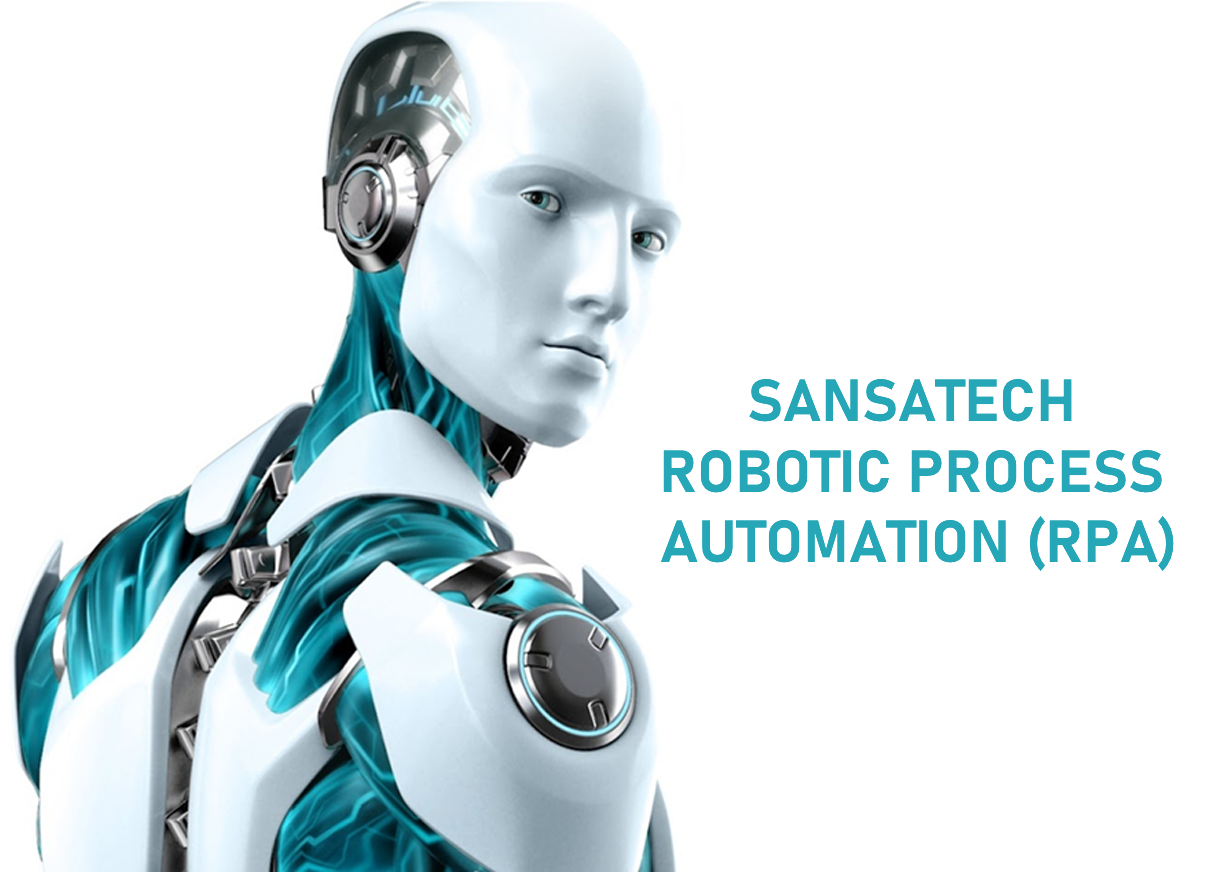SANSATEK ROBOTIC PROCESS AUTOMATION (RPA)
As technology develops, more and more industrial sectors are adopting robotic systems because the system is considered capable of increasing productivity, safety, consistency of quality, and flexibility. The industries that have begun implementing the robotic system are the banking industry, one of which aims to support its operational activities. Banking operational activities that require high accuracy require a robotic system that can accommodate service quality improvements based on process acceleration and also to reduce operational costs. Therefore a robotic system is needed to carry out banking operations for this purpose or to improvise an existing system.
Robotic Process Automation (RPA) is a technology concept to automate work / processes that are still manual, repetitive in nature, usually have high volume but accuracy remains the main indicator
The benefits and objectives of implementing the Operational Process Automation Robotics application are:
- RPA Integrate several automation processes according to the desired output
- RPA Speed up processes, increase accuracy, optimize cost budgets and work 24/7
- RPA is a low budget investment because it does not require additional CAPEX
- RPA can be integrated with the API / AI system
- Implementation is relatively faster
- Does not interfere with existing systems
- Can change the business environment for the better
- Automation of the monitoring and reconciliation process so as to reduce the use of human resources.
- Reducing the risk of potential loss caused by paying compensation costs.
- Improve the efficiency and effectiveness of the system for monitoring, reconciliation and reporting activities.
- Reconciliation can be done in real-time so as to reduce potential losses in the event of a double credit or double transfer.
- Reducing costs and accelerating the reconciliation and reporting process
In the last few years, the analyst community has started to develop rapidly in studying Robotic Process Automation (RPA). Where, there is a strong consensus that RPA is a central and essential component of the development of automation in the future.
UiPath is a global software company that develops a platform for Robotic Process Automation (RPA) tools to help automate repetitive processes. UiPath understands that complete agreement on terminology between analyzes, such as hyper automation and intelligent automation is impossible. From this one example, UiPath and PT Sangkar Sari Teknologi are trying to better understand the trend of automation market.
Simply put, UiPath's goal is to create a fully automated company. Therefore, ecosystem development is very important to support these goals.
IT experts measured the Total Addressable Market (TAM) for hyper intelligent automation at $ 65 billion, with an estimated company spending in 2025 of $ 42 billion, provided the compound annual growth rate is 55% for 2020-2025. UiPath admits that even though IT as a whole has experienced a decline due to the current Covid-19 pandemic, it does not affect customers' interest in adopting hyper intelligent automation.
Benefits of implementing RPA:
- 100% Accuracy (100% Accuracy) RPA follows your orders tirelessly and without making mistakes 24/7 throughout the year and the results are consistent
- Improved Compliance RPA did exactly what it was told and everything could be monitored
- Fast Return on Investment (Fast & High ROI - Return on Investment) The impact of implementing RPA will reduce processing costs by up to 80%. You will get ROI (Return on Investment) in less than 12 months to automate your business processes
- Super Scalable If one "robot" can help that much, imagine their troops in all your business units and in all branches around the world. Additional robots in UiPath can be deployed quickly with minimal costs
- Increased Speed and Productivity (Increased Speed and Productivity) You don't pay your employees just to copy-paste numbers into the table. RPA can do it even faster! Your employees must do other things that add value to the company. so let RPA do your manual work RPA is favored by businesses, primarily because of its ability to help organizations operate more efficiently by automating repetitive or repetitive manual work. The monotonous nature of work can cause worker productivity to decline.
So you have complete control and less risk of mistakes. RPA will operate according to the rules and standards you set
- Uipath - Robot is a fundamental component of the UiPath Enterprise RPA Platform. Robots run automation workflows designed in UiPath Studio and can be managed centrally from the UiPath Orchestrator.
- Uipath - Orchestrator is a web application that allows you to set up the UiPath Robot to carry out repetitive business processes. The orchestrator manages the creation, monitoring, and deployment of resources in your environment, acting as an integration point with third-party solutions and applications.
- Uipath - Studio is a complete solution for application integration, and automating third party applications, administrative IT tasks, and business processes.

Advantages of using RPA
ERROR REDUCTION

COST REDUCTION

CYCLE TIME REDUCTION

HIGS SCALABILITY

